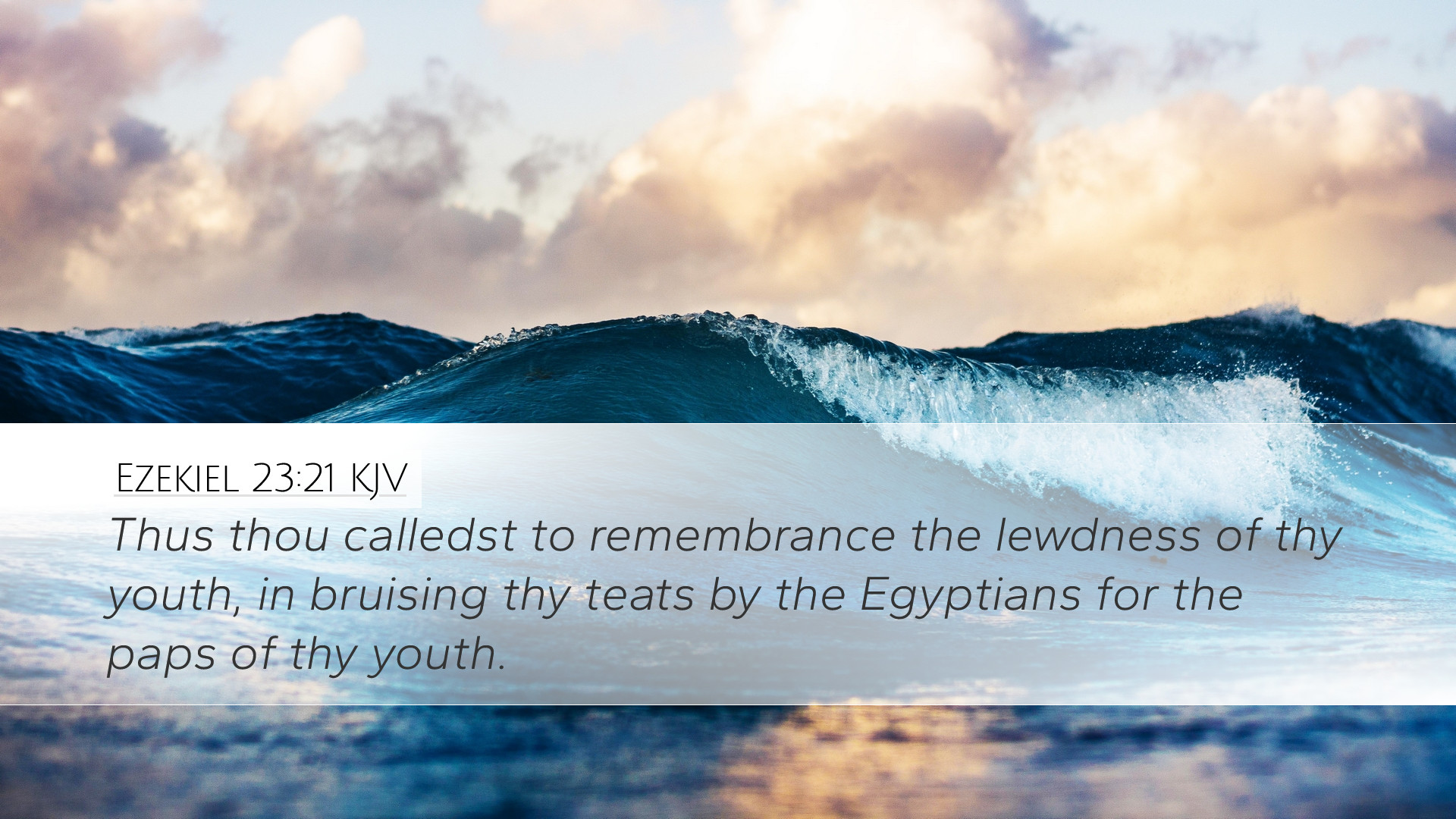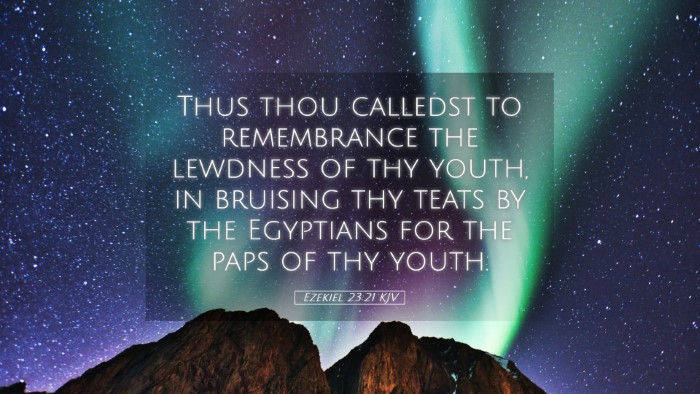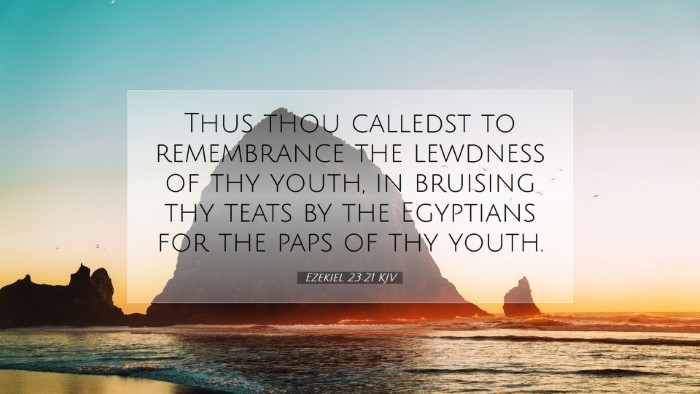Ezekiel 23:21 Commentary
Verse Overview: Ezekiel 23:21 is a part of a larger allegorical narrative that addresses the unfaithfulness of Israel and Judah. In this verse, God speaks to the metaphorical representation of Samaria and Jerusalem as two sisters, Oholah and Oholibah, illustrating their fornication and infidelity to God through idolatry and alliances with foreign powers.
Contextual Background
This verse appears in a passage where God, through the prophet Ezekiel, uses powerful imagery to communicate the spiritual adultery of His chosen people. The historical background is set during the time when the Kingdom of Israel has fallen, and Judah is on the brink of disaster due to their persistent disobedience. The metaphoric sisters represent the divided kingdoms: the northern kingdom of Israel (Oholah) and the southern kingdom of Judah (Oholibah).
Thematic Elements
- The Unfaithfulness of God's People: This passage emphasizes the tendency of God's people to turn away from Him, seeking fulfillment in idols.
- The Consequences of Idolatry: The metaphor highlights the destructive nature of idolatry, suggesting that such actions lead to judgement and separation from God.
- Divine Judgment: God’s response to their waywardness is depicted as both just and necessary, underscoring His holiness.
Commentary Insights
Matthew Henry: Henry emphasizes that this passage demonstrates God's abhorrence of idolatry. He asserts that the language used is intentionally graphic, reflecting the seriousness of Israel's sin. He observes the depths of their depravity, noting that just as a married woman committing adultery dishonors her husband, so too did Israel dishonor God by embracing foreign idols and practices.
Albert Barnes: Barnes focuses on the historical and social implications of the terms used in the verse. He points out that the allusions to sexual immorality are not only to emphasize betrayal but are also indicative of the corrupt alliances and treaties with surrounding nations (like Egypt and Assyria). He stresses that the relationships formed were indicative of a lack of trust in God, which is central to understanding the spiritual meaning behind their actions.
Adam Clarke: Clarke offers a more detailed interpretation of the figures of Oholah and Oholibah. He relates this to the historical realities of Israel's and Judah's respective judgments. Clarke notes that these names symbolize the origins of the two kingdoms and serve as a reminder of their covenantal obligations to God. He acknowledges that the prophetic narrative vividly illustrates the betrayal that God feels, akin to a marital betrayal.
Application for Today
The lessons from Ezekiel 23:21 are still pertinent today. The church must guard against the allure of cultural idolatry which can manifest in various forms such as materialism, nationalism, and secular philosophies.
- Examine Allegiances: Believers are called to reflect on their alliances and whether they are placing their trust in God or in worldly systems.
- Holiness and Faithfulness: This passage serves as a reminder of the importance of fidelity in our relationship with God. Just as marriage vows require faithfulness, so does our covenant with the Lord.
- Understanding Judgment: Recognizing that God’s judgment is not merely punitive but serves to bring back the errant to Himself, leading them to repentance and restoration.
Conclusion
In Ezekiel 23:21, the allegorical narrative reveals profound truths about the nature of sin, the seriousness of spiritual unfaithfulness, and the nature of God’s judgment. By studying the insights of renowned commentators like Matthew Henry, Albert Barnes, and Adam Clarke, we gain a deeper understanding of the historical, spiritual, and practical implications of this verse. For pastors, students, theologians, and scholars alike, this passage presents an enduring call to fidelity to God amidst the temptations of idolatry in our present day.


